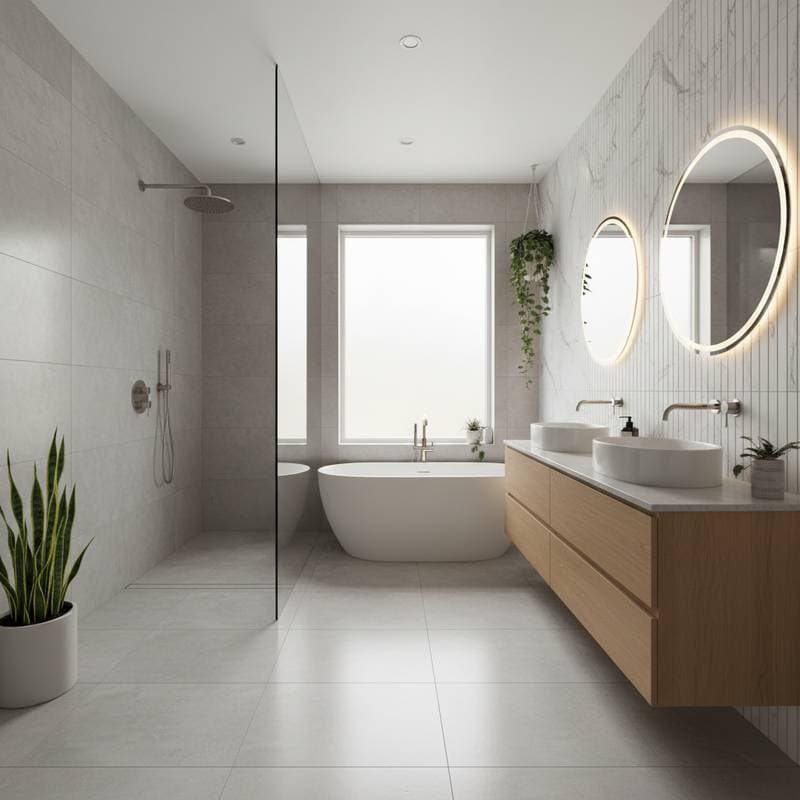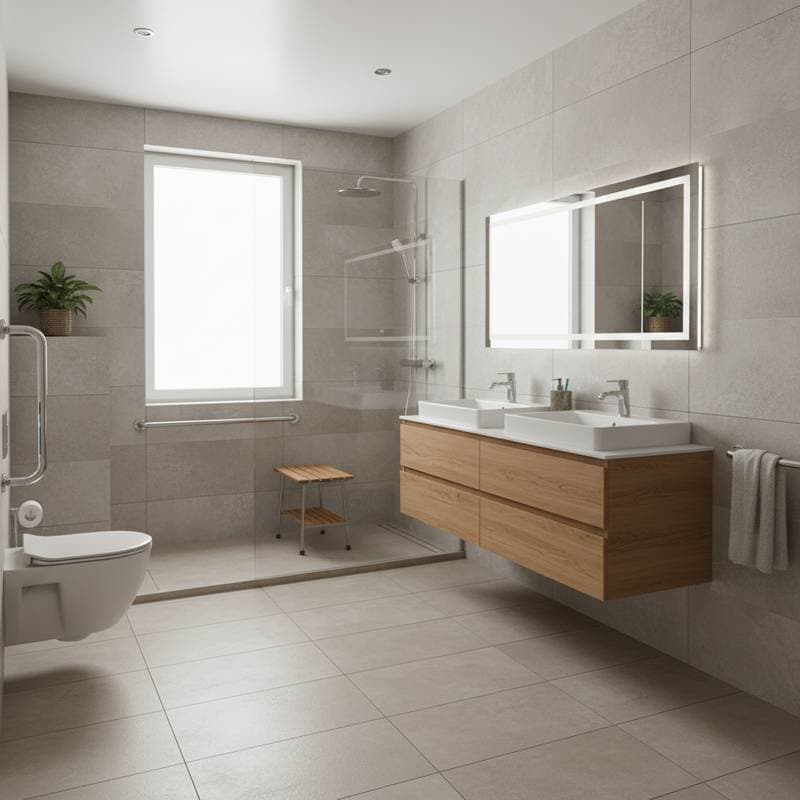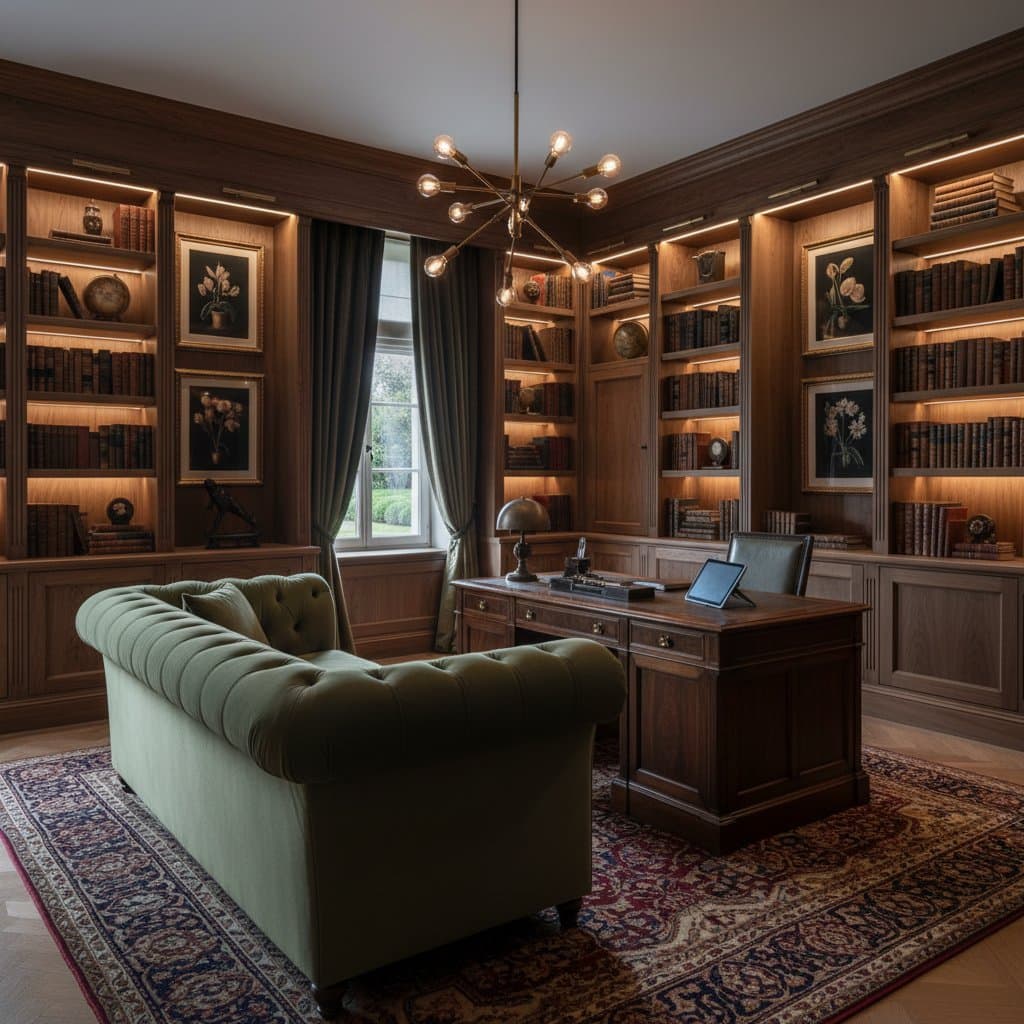Why Moody Color Palettes with Dark Walls Accelerate Home Sales
Dark interior palettes have evolved from fleeting trends into strategic tools for real estate success. Agents observe that properties featuring deep, moody colors elicit stronger emotional connections from potential buyers compared to standard neutral tones. These spaces capture attention through superior photography, a sense of stability, and differentiation in crowded listings, ultimately positioning homes as premium offerings.
Homeowners aiming to convey sophistication and modernity find dark palettes particularly effective. Such colors perform optimally in residences with ample natural light, prominent architectural elements, or expansive floor plans that counteract the intensity of deeper shades.
Advantages and Drawbacks of Dark Wall Colors
Advantages
- Fosters Emotional Engagement: Dark rooms render exceptionally in photographs, generating heightened online inquiries from prospective buyers.
- Imparts a Sense of Luxury: Rich tones imply high-quality materials and bespoke design elements, elevating perceived value.
- Emphasizes Architectural Details: Elements such as crown molding, window frames, and built-in cabinetry gain prominence against darker backdrops.
- Minimizes Glare Issues: Matte surfaces paired with dark hues diffuse harsh light, creating comfortable viewing environments.
- Conceals Imperfections: Minor surface irregularities become less noticeable on dark walls than on lighter backgrounds.
Drawbacks
- Susceptible to Visible Marks: Dark surfaces display scuffs and dirt more readily, necessitating regular maintenance.
- Potential to Compress Perceived Space: In compact rooms, dark colors can make areas feel more confined without adequate illumination.
- Relies on Effective Lighting: Both natural daylight and supplemental fixtures are essential to prevent rooms from appearing oppressive.
- Challenges in Future Repainting: Covering dark layers with lighter shades often requires multiple coats for uniform results.
- Demands Precise Color Matching: Any repairs must employ paint from the identical batch to maintain tonal consistency.
Handling Dark Wall Painting: DIY Approach Versus Professional Services
Applying dark paints presents greater challenges than lighter neutrals due to the visibility of application errors like brush strokes or overlaps. Precision in technique ensures a flawless finish that enhances the overall aesthetic.
DIY Option:
- Required Skill Level: Intermediate proficiency in painting techniques.
- Estimated Time Commitment: One to three days for a standard room, depending on size and complexity.
- Essential Tools: High-quality roller, angled sash brush, protective drop cloths, precision painter's tape, and a dedicated primer.
- Potential Risks: Uneven application or noticeable seams if preparation and execution falter.
Professional Services:
Opt for experts when surfaces require repairs, texturing, or when dealing with high ceilings and intricate details. Professionals deliver superior results with specialized tools like tinted primers and premium brushes that eliminate streaks. They expertly manage concentrated pigments, avoiding dilution that could lead to color shifting during drying.
Upkeep and Durability of Dark Wall Finishes
Dark walls endure comparably to lighter counterparts in terms of longevity, though they demand more vigilant care for marks and wear. In areas with heavy foot traffic, plan for repainting every five to seven years to preserve vibrancy. Employ gentle cleaning solutions for spot treatment, steering clear of abrasive methods that could damage the surface.
Select matte or eggshell sheens for high-use zones to reduce visibility of reflections and impacts. For properties on the market, store surplus paint in clearly marked, airtight containers to facilitate prompt touch-ups prior to open houses. Reputable paint manufacturers typically provide limited lifetime guarantees against color fading when applied in interior settings shielded from direct sunlight exposure.
Practical Styling Strategies to Optimize Home Presentation
To maximize the impact of dark walls, incorporate elements that introduce contrast and vitality. Pair intense wall colors with light-toned textiles such as area rugs, window treatments, or wall art to diffuse visual weight. Integrate metallic accents in warm shades like brass, gold, or bronze to introduce reflective highlights and subtle glow.
Layer lighting sources thoughtfully: overhead fixtures for general illumination, task lights for functional areas, and ambient options like floor lamps for mood enhancement. Maintain lighter flooring materials, including oak planks, maple hardwoods, or neutral tiles, to anchor the palette without overwhelming it. Introduce foliage through potted plants or hanging greenery, which contrasts vividly against dark backgrounds and infuses freshness.
Professional photography plays a crucial role in showcasing these designs. Capture images using diffused, natural light sources to highlight textures and depths accurately. Steer away from direct flash, which can wash out colors and diminish the intended drama.
Regional Considerations for Dark Palette Implementation
Local environmental factors and buyer tastes influence the effectiveness of dark wall applications. In coastal properties, select humidity-resistant formulations alongside light flooring to mitigate moisture-related issues like warping or mold growth. Desert locales benefit from cooler-toned selections such as slate grays or navy blues, which temper the effects of intense sunlight.
Colder regions suit deeper greens and earthy browns, fostering a cozy atmosphere that counters seasonal chill. Urban settings amplify the appeal of dark interiors, where they harmonize with skyline vistas and contemporary structures for striking listing visuals. For historic dwellings, opt for charcoals and navies that honor traditional aesthetics while injecting modern relevance.
Professional labor rates vary geographically: expect $4 to $7 per square foot in coastal metropolitan areas, dropping below $3.50 in rural communities. Consult local contractors to verify requirements for specialized primers with darker pigments, ensuring compliance with regional building regulations.
Essential Safety Protocols for Painting Projects
While painting appears straightforward, adherence to safety measures prevents hazards during execution. Equip yourself with respirators or well-fitted masks in confined spaces to avoid inhaling fumes. Ensure thorough ventilation by opening windows and using fans throughout the application and curing phases.
Position paint materials distant from ignition sources like open flames or gas appliances. Store unused portions in temperature-controlled, secure locations inaccessible to children and animals. Adhere to municipal guidelines for disposing of paint residues and containers responsibly.
For renovations involving older structures, test surfaces for lead content if built before 1978 standards. Engage licensed abatement specialists for safe removal should contaminants be present, prioritizing health protections.
Steps to Implement Dark Walls for Quicker Market Turnover
Revitalizing a dated interior through a moody palette offers a swift path to renewed appeal. Begin experimentation in a single room to gauge the transformation's suitability with current fixtures and floors. Select shades that complement existing elements, then enhance with warm illumination and pristine surfaces for equilibrium.
As listing nears, document the space with comprehensive shots encompassing broad views and intimate details to convey depth and quality. The objective centers on prompting buyer curiosity and envisioning residency, an outcome dark walls achieve more effectively than subdued alternatives.
Secure estimates from at least three certified painting professionals, inquiring about primer tinting, application methodologies, and sheen selections. This targeted expenditure in superior materials and meticulous preparation converts standard areas into compelling assets, expediting the selling process.










